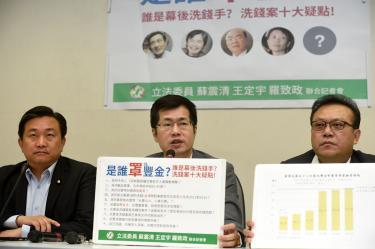President Tsai Ing-wei (蔡英文), in her role as commander-in-chief, presided over the Han Kuang live-fire drills for the first time after assuming office in May.
News
|
|||
|
More Articles...
|
|||
|
|
|||
| Page 104 of 250 |
Newsflash
DHARAMSHALA, October 7: Reports coming out of Tibet confirm that two more Tibetans set themselves on fire today in an apparent anti-China protest. One is feared dead while the other is being described in serious condition. |



 The News
The News









